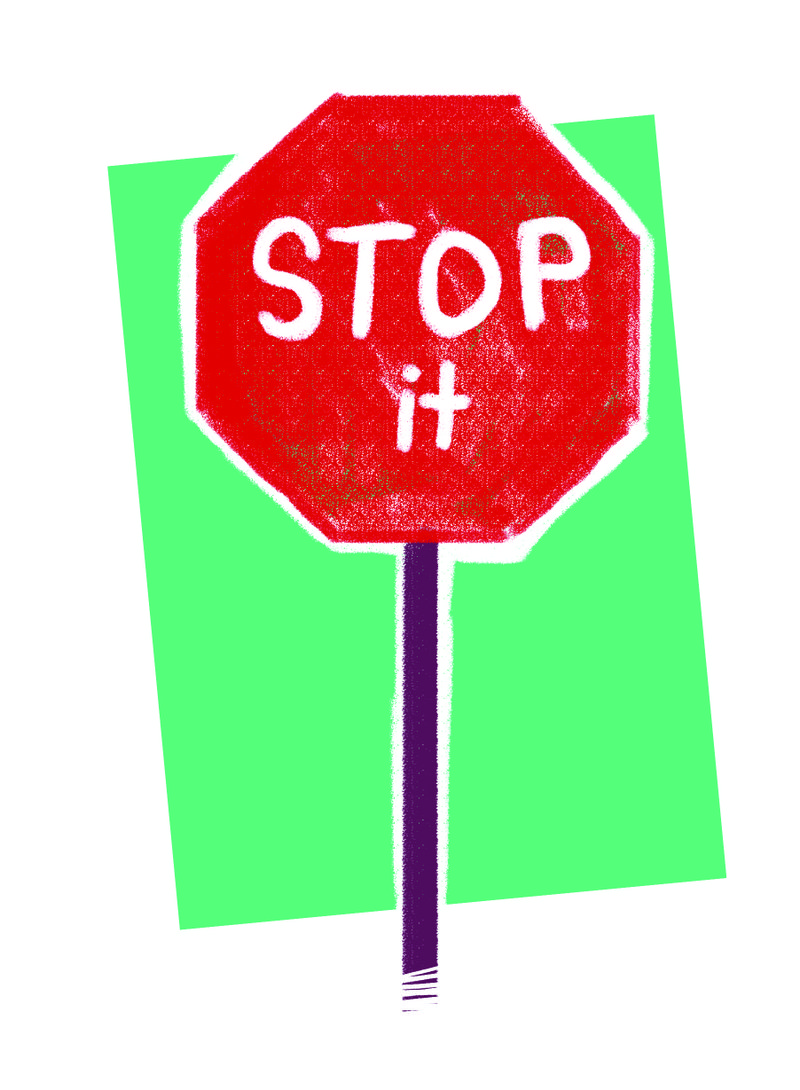School is upon some of us once again, so I'll roll out my annual opposition to traffic signs that say "Drive Safe."
The sentiment is laudable, but many say the grammar is wrong.
The correct phrase would be "Drive Safely."
"Safely'' is an adverb, which is a word that describes the way something is or how something is done. An adverb's purpose is often to answer the question of how.
How do the sign writers want you to drive? Safely.
I consulted my former copy editing professor, Buck Ryan, who knows all about this sort of thing.
Slightly to my dismay, he brought up a scene from a Three Stooges skit in which Curly is sent up the road to see where the gang has ended up on a road trip. (More surprisingly, they are in the car with three women, and one woman is sitting on Larry's lap. But that's a discussion for another day.)
He reports that they are in "Goslow." We soon find out that the sign says "Go Slow." I don't have a lot of faith that Curly would have understood things more clearly if the sign had said "Go Slowly." He has disappointed me again and again.
Buck said that traffic signs have used poor grammar for generations. Shorter words allow larger type, which is easier to read.
I feel obliged to add that Merriam-Webster classifies "safe" as a "flat adverb." This means it can be used as an adverb and an adjective. But I will remain persnickety and continue to advocate for "safely."
TRICKY LATIN
A tricky spelling to remember is "sacrilegious," showing a lack of proper respect for something or someone normally revered or honored. Because it can involve religious figures, people often think it's spelled "sacreligious."
The roots are different, though. Sacrilegious is from the Latin for "one who robs sacred property."
Religious comes from the Latin root for "reverence.''
NAMING NAMES
This week's difficult-to-remember word is "antonomasia," an-tah-neh-may-zha, with the accent on the fourth syllable.
People use this constantly but probably don't know the name for it. It's when you substitute a nickname for a person's real name.
The sports world has refined this to an art: "Pistol Pete" for NBA showman Pete Maravich, "Mr. October" for baseball slugger Reggie Jackson, "The Great One" for hockey's Wayne Gretzky, "Refrigerator" for the NFL's less-than-svelte defensive lineman William Perry.
Among my favorite uses of antonomasia: "Dr. Dunkenstein" for Darrell Griffith of the Utah Jazz and "Sloppy" for Hollis John Thurston, a major league pitcher in the 1920s and 1930s.
Antonomasia is also when you use a proper name to describe a certain kind of person. A cheap person might be called a Scrooge. Someone good at solving puzzles might be called a Sherlock, as in Sherlock Holmes. Casanova or Don Juan or Lothario would be used for a ladies' man.
Sources: Words on Words by John B. Bremner, About.com, M-W.com, the Free Dictionary, Grammar Girl
Reach Bernadette at
bkwordmonger@gmail.com
ActiveStyle on 08/21/2017
